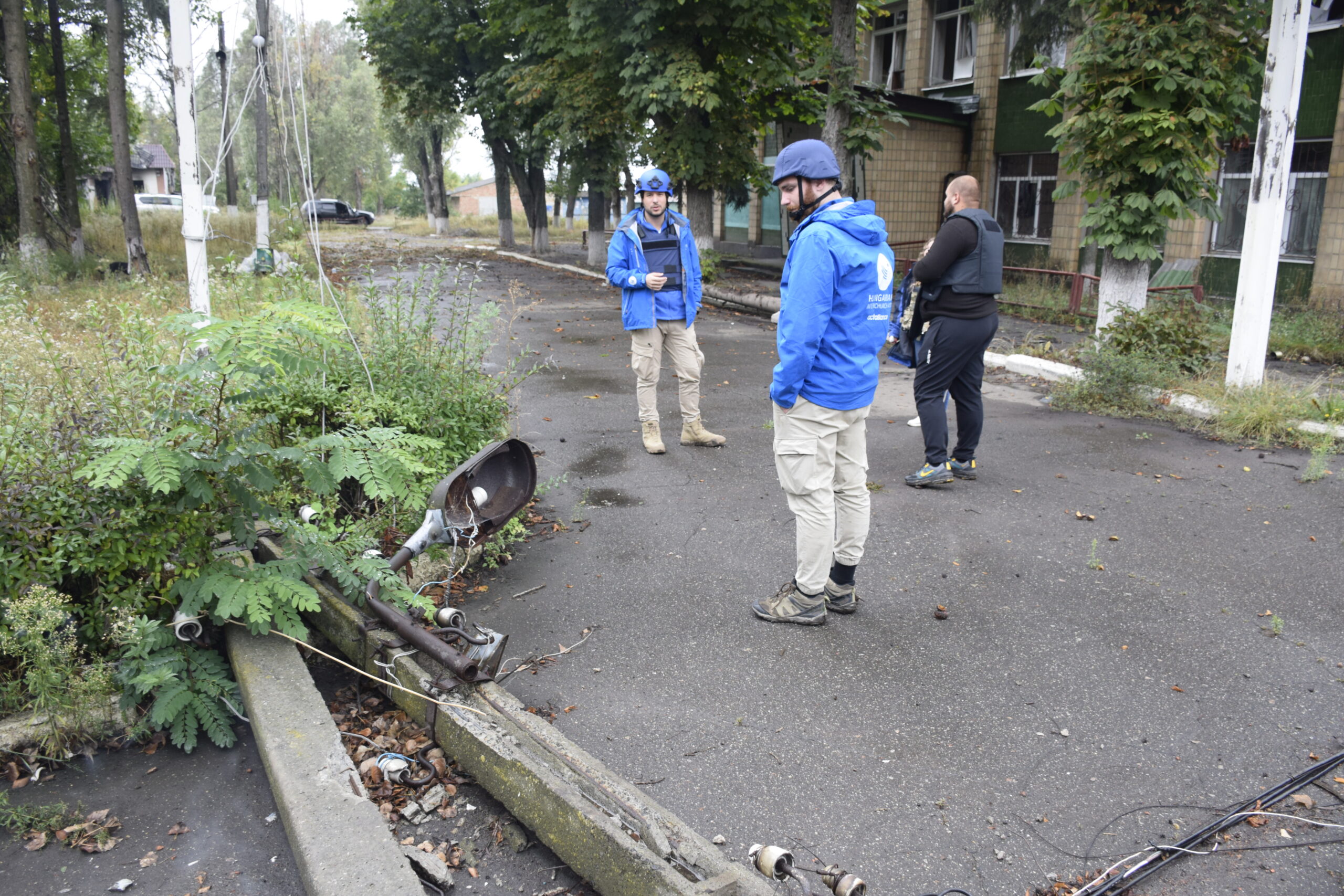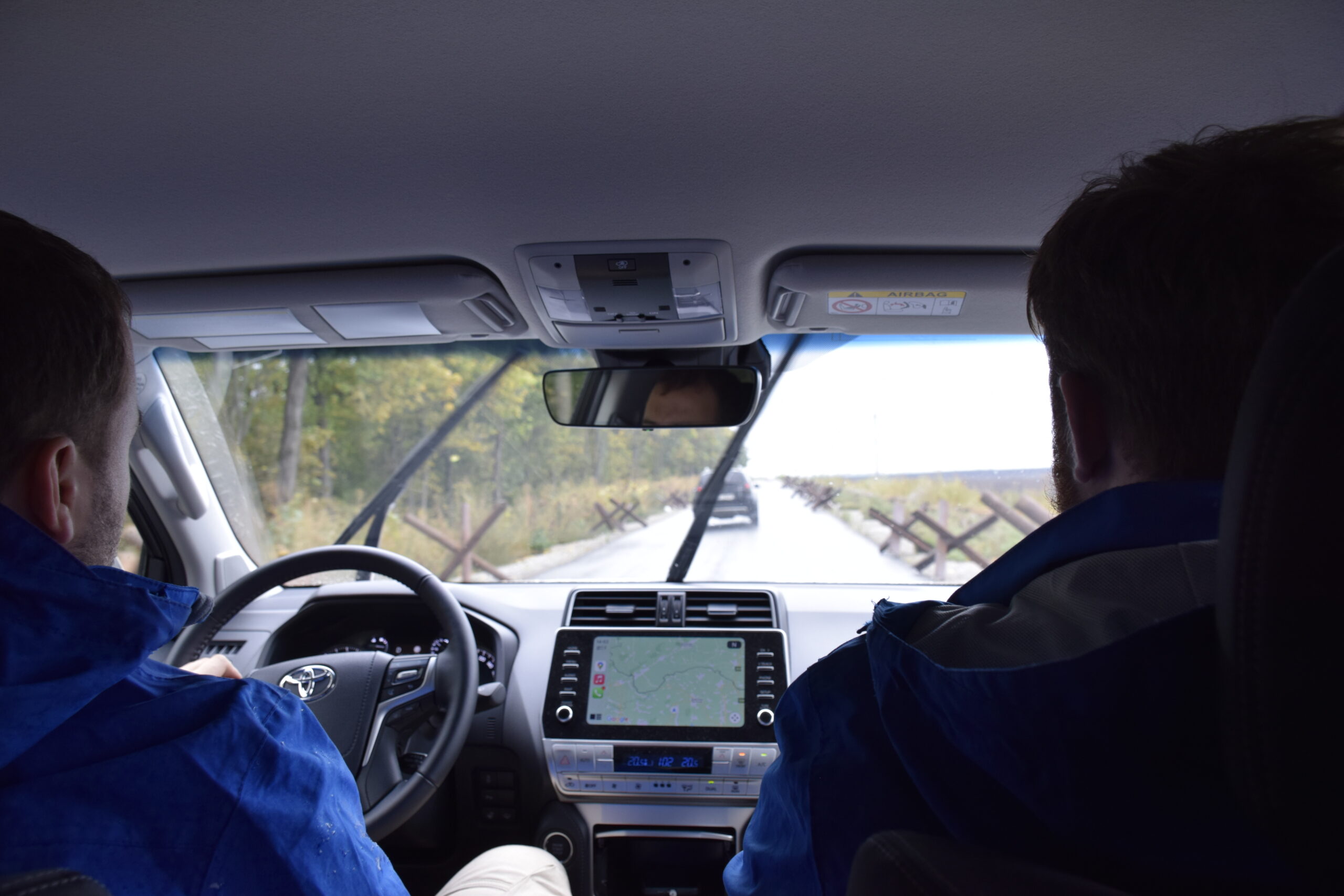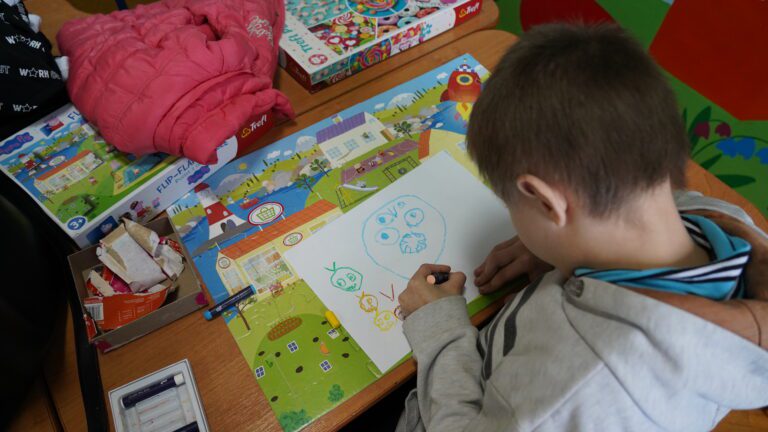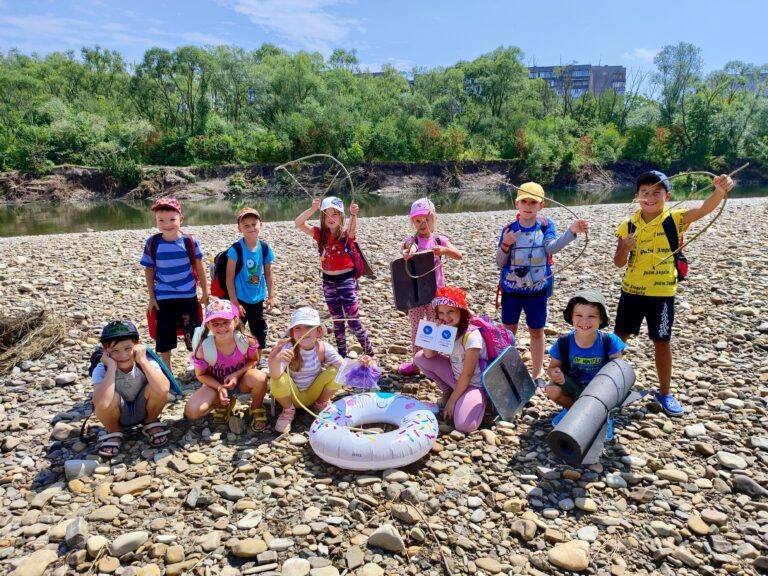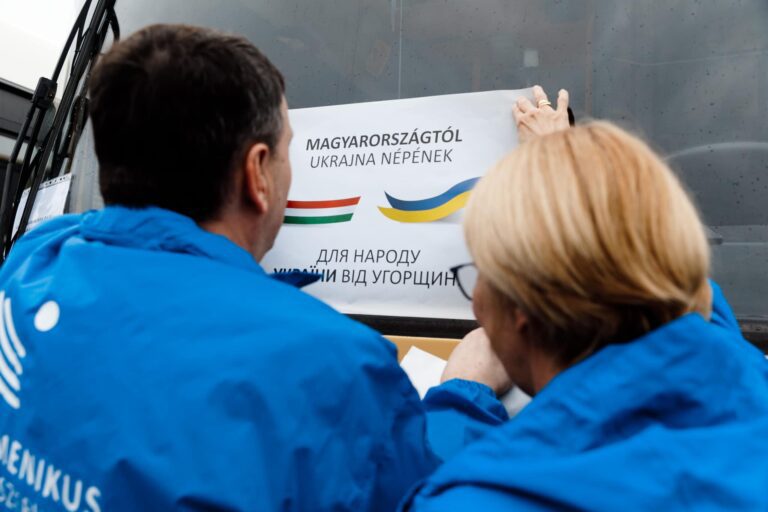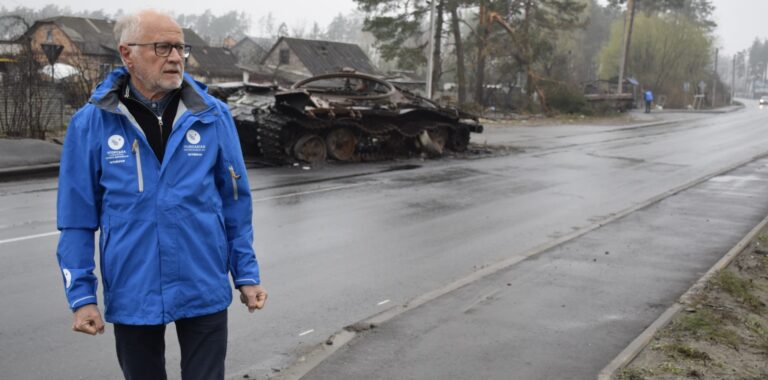Those who don’t make the news – A shop too far
While the world looks to the newly liberated areas of eastern Ukraine, little is said about those who have been destitute since the first day of the war and whose situation has changed little. The combat events in the Kharkiv region can only mask the hardships endured for more than half a year by the people living here for so long. With winter approaching and temperatures dropping, issues such as broken and shattered windows, damaged walls and roofs, and the general lack of heating are coming to the fore. Hungarian Interchurch Aid (HIA) has carried out an extensive survey of the region to provide the fastest and most effective assistance possible to one of the worst-affected areas by the war. In the second episode of our multi-part series, our colleague Dániel Kiss reports from Zolochiv district, just between the Russian border and Ukraine’s second biggest city, Kharkiv .
Zolochiv district, Kharkiv region, Ukraine
“Here, people live off what they find around. They pick mushrooms in the forest, and they fish. They are quite inventive in this respect,” says a volunteer in the Zolochiv district, a sparsely populated area north of Kharkiv. Zolochiv suffered a lot in the first phase of the war. Its eastern parts were occupied until recently with the last Russian soldiers leaving the area last week. The survey team passed several seemingly uninhabited villages along rugged roads, the silence is broken only by the sound of the car engine. Yet, it is common that multiple families who have fled the occupied parts of the district are holed up in one house, waiting for their fate to change for the better. Where and how many people in need there are is known only to local charitable organisations which have been trying to provide for the almost forgotten population of the district.
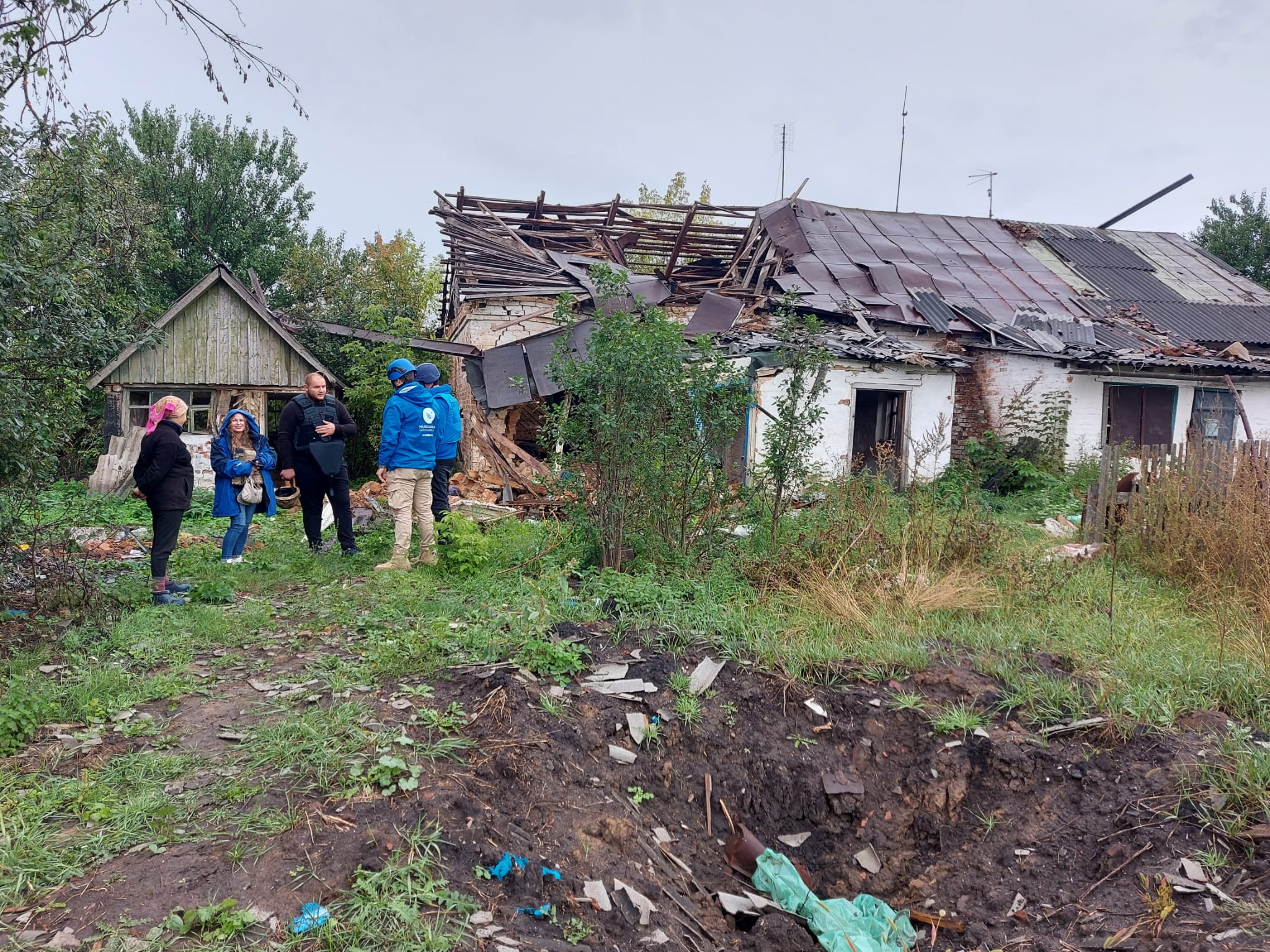

The war has destroyed job opportunities in the Zolochiv district, people are living on a shoestring. Even if one can allocate his or her money to buy things, there is on average one open shop for every four villages. Shopping, therefore, requires fuel, so people are faced with a difficult question: what to spend money on? On fuel for travel or to run a diesel generator for electricity? Here, some areas have neither gas for heating, nor electricity. Should one save up for groceries when the chance arises to join in on a run to the shop? And even if they get to a shop, what do they buy for a household lacking communal services?
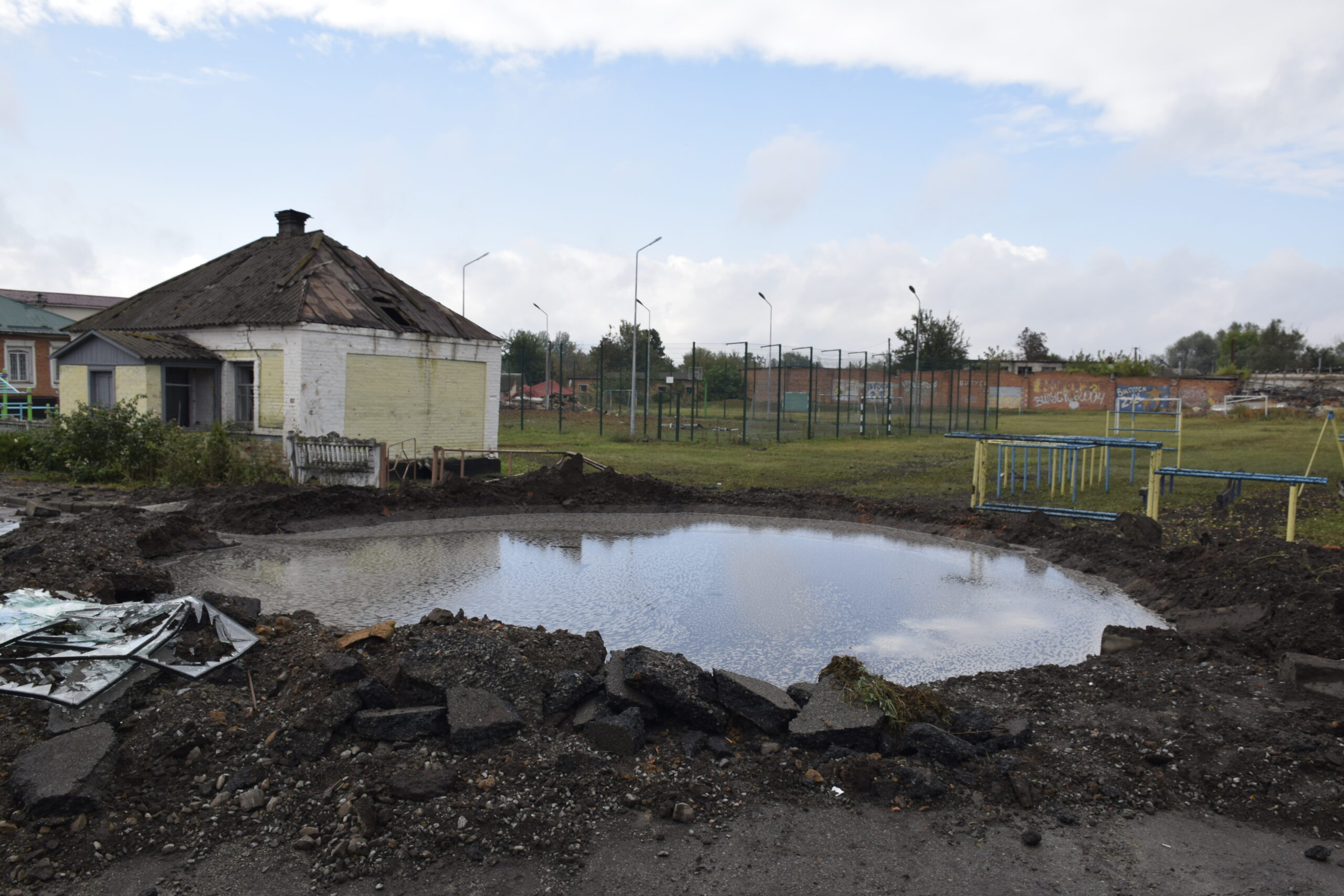

The situation is further complicated by the fact that people are scattered across the region with needs varying from household to household. Two other issues also make the coordination of humanitarian assistance a challenging task: firstly, hundreds of IDPs are expected to return to their homes in the east of the district in the near future to spend the winter in their own homes. The second is that several settlements are still exposed to rocket and artillery attacks despite the withdrawal of the occupying forces. As temperatures drop below zero degrees, the situation of local residents is likely to become even more difficult – just like in the whole of the Kharkiv region, neither heating nor electicity is taken for granted in the Zolochiv district.
